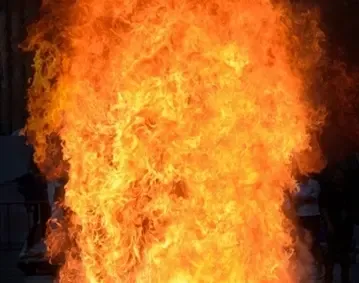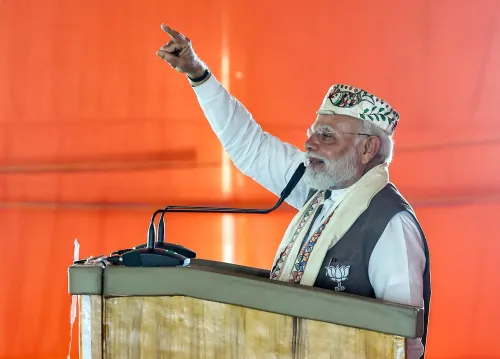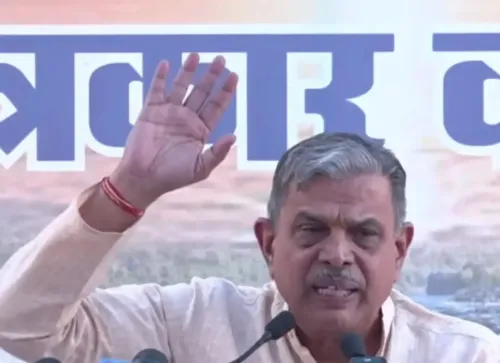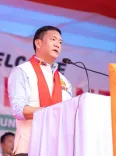Did US President Set the Agenda for the Indo-Pak Nuclear Pact in 1988?
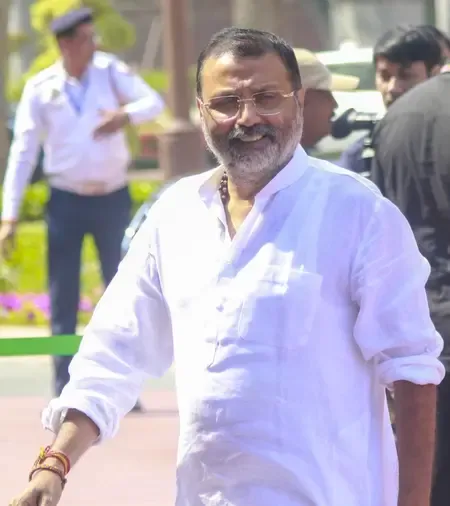
Synopsis
Key Takeaways
- Nishikant Dubey references a critical letter from US President Reagan.
- The letter indicates US involvement in the 1988 nuclear agreement.
- Concerns about India's sovereignty are raised.
- The significance of foreign influence in diplomatic relations is highlighted.
- This discussion reflects ongoing political debates in India.
New Delhi, May 29 (NationPress) BJP MP Nishikant Dubey, on Thursday, referenced a declassified letter from former US President Ronald Reagan to then Prime Minister Rajiv Gandhi to criticize the Congress party for disputing American involvement in diplomatic initiatives between India and Pakistan.
In a post on X, Dubey expressed, “Why does the Congress get upset? Reading this letter filled me with profound regret.”
He shared a copy of the correspondence, which indicated that the US played a pivotal role in the development of the 1988 India-Pakistan nuclear agreement and other regional directives.
Dubey remarked, “President Ronald Reagan sent this letter/telegram to then Prime Minister Rajiv Gandhi. Under American pressure, we engaged with Pakistani President General Zia. The American President set the agenda for our discussions.”
He further stated, “This letter unveils that the 1988 nuclear agreement between India and Pakistan was signed under American influence. Even our dialogues with our ally, Soviet Russia, regarding the Afghanistan issue were steered by the American agenda. Is this what the Shimla Agreement represented? Was this subservient mindset the legacy of the ‘Iron Lady’? Were we genuinely a sovereign nation? And now the Congress criticizes Modi ji for empowering India?”
The excerpt of the letter shared by Dubey states: "You are aware of my concerns regarding nuclear competition in the subcontinent. Your discussions with President Zia next week in Delhi can assist in establishing a framework for peace. I recognize that nuclear matters will prominently feature in your conversations. We will continue to back regional efforts aimed at achieving nuclear peace in the subcontinent. We are also engaging bilaterally to enhance non-proliferation prospects, as you requested."
The agreement mentioned in the letter is the Agreement on the Prohibition of Attack Against Nuclear Installations and Facilities, signed by India and Pakistan on December 31, 1988, and enacted in 1991.
Dubey’s comments come amidst renewed attacks from the Congress party regarding the Modi government’s management of foreign involvement in India-Pakistan relations and the cessation of Operation Sindoor, initiated following the Pahalgam terror incident.
Dubey further questioned the rationale behind India’s military engagement in Sri Lanka during the 1980s, insinuating that it might have been influenced by Washington as well.
“Based on this letter, it appears that even in Sri Lanka, we deployed the army to confront Tamil brothers solely under American pressure?” he asked.

